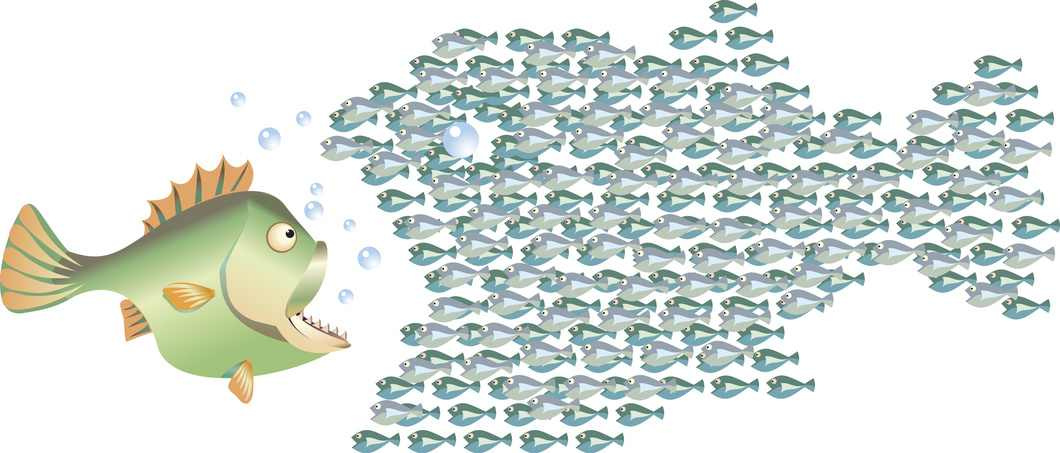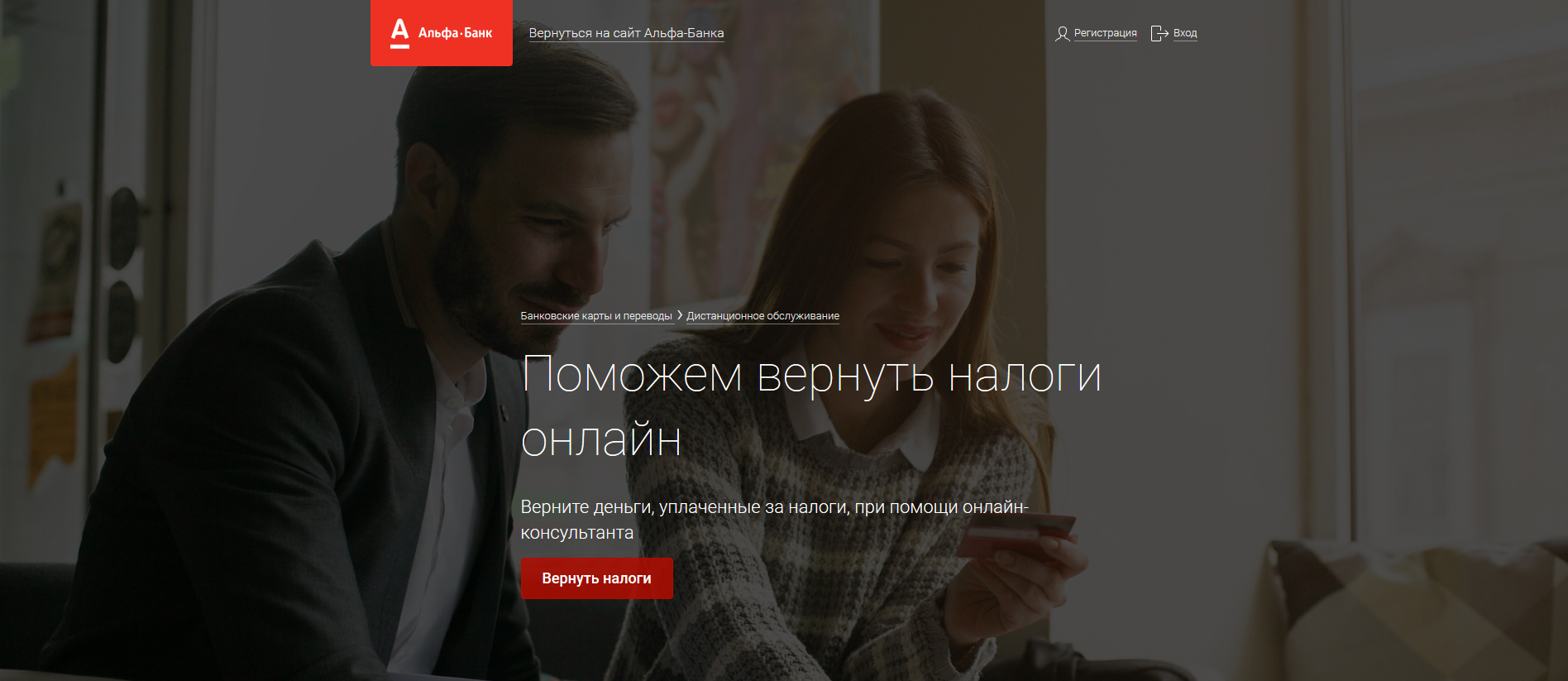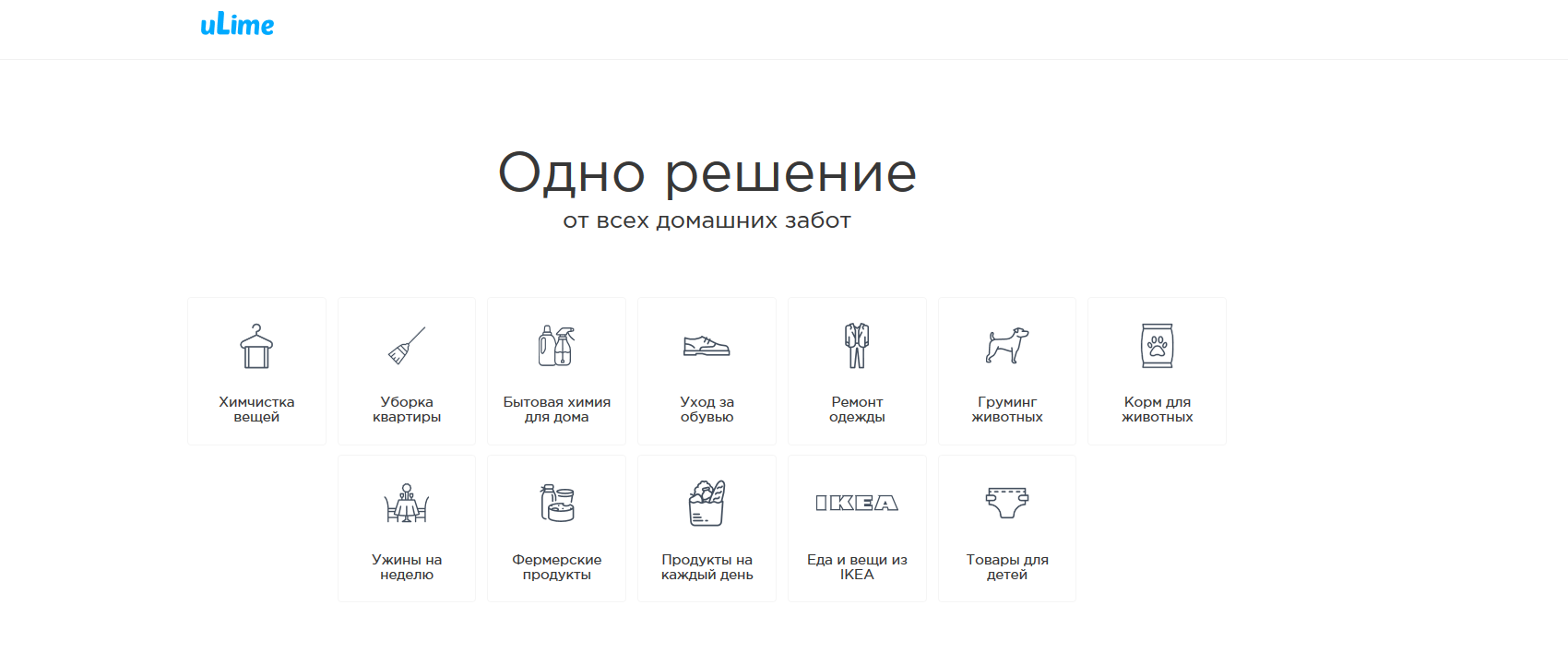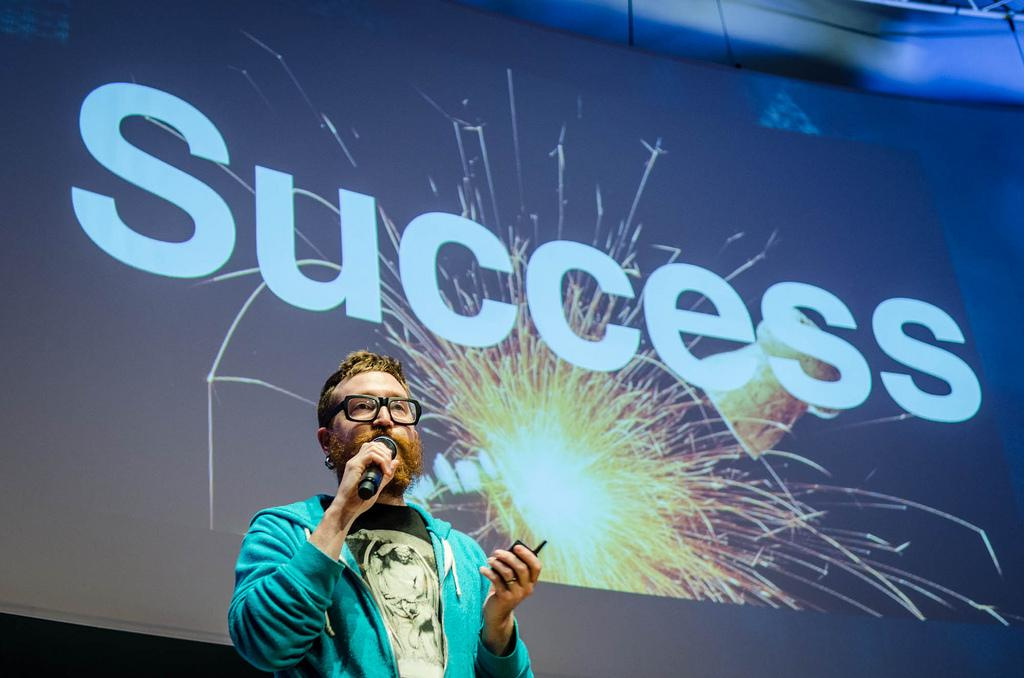How to stand on the shoulders of a giant. Allowance for fintech startups

Today we decided to talk with Sergey SergeyMaksimchuk Maximchuk, he is responsible for working with promising partners in the Innovation Team of the Alpha Laboratory, which is designed to look for and bring innovations from the outside world to Alfa Bank. It is through him that startups can offer their ideas to the bank. The task of the Innovation team is to evaluate the project, find a customer inside Alfa-Bank and make the project fly. Is it so difficult? What does Alfa-Bank want from startups? What should teams do to make a partnership? Sergey reveals all the secrets.
- How can banks and fintech startups be friends? What is the use of it? Are they not competitors to each other?
Yes, theses are sometimes heard that Fintech startups will eat up banks, and talk about some sort of confrontation between new technology companies and classical representatives of the financial market. In fact, it turns out an amazing thing: the cooperation of banks and startups benefits both parties.

')
Startups are interesting to the bank in terms of new technologies that can simplify the internal processes of the bank or generate new client products. Due to its scale, the bank is not always sensitive to some narrow, niche solutions, or to some barely born technologies. Cooperation with startups allows the bank to be more synchronous to the surrounding changes. Why are startups? Firstly, we are a major customer. Secondly, the flow of customers. The bank has a lot of clients, start-ups, as a rule, are few. In other words, the bank is able to give a huge scale for certain decisions. And, of course, experience. Starting with us to work, start-ups begin to delve into the banking processes, they learn a lot from us. For example, they begin to delve into issues of government regulation or understand in detail the process of how to fuse a bright idea with the security of money and users.
We can also give our own technologies to some startups, we have a lot of processing, we are able to make various types of payments, we have, after all, a banking license. We can provide our technology platform to startups who can use it inside their product.
Well, we should not forget that startups are closely connected with the venture capital market, and after successful projects with large customers, capitalization usually increases. They get financing.
- Well, if you buy a startups yourself? Or invest in it? Will this bank go?
We had a case last year when we conducted due diligence of one startup in order to acquire it. We agreed that we would buy a software product that they developed, their client base and invite a start-up team to work at Alfa-Bank. This year we are already conducting an audit of a well-known company and are ready to consider another one or two companies in order to acquire a share.
And about the money ... If we see that it is economically or strategically expedient, then we will definitely invest in such a company. We are at the degree of maturity when the bank is ready for this.
- And a lot of startups manage to “vacuuming” in our market?
Lot. Last year, we analyzed 315 startups, worked closely with 65 of them when evaluating the value and scale. Five startups came to piloting, as a result, two then scaled to our customer base.

While the numbers are. I think that in the next year or two the market will grow, because there are certain efforts from both private players and state development institutions: Skolkovo, IIDF, RVC, which carry out acceleration programs, provide grants, invest in start-ups. There are more and more new faces, teams that create new products.
- How and where are startups searched?
There are many tools for gathering startups, from a simple press release to a complex, multi-month acceleration program. And we, in principle, have already tried all the tools.
In 2014, we were the first among banks to conduct an acceleration program for fintech startups - Alfa Camp. Within two months, the teams underwent training, their task was to conduct research and create a prototype product, and present it to the jury from our experts in the final.

The response from the market was great. We received 370 applications for the first program, and 888 for the second! Now I am working on launching the third Camp. We want to launch it in 2017
We also conduct hackathons for teams. We conducted a virtual hackathon with Microsoft, where we put our software on the API, connected to the card-to-card payment service and asked the teams to come up with various client services using our platform.
Just now, on August 5-6, our hackathon took place in Moscow, where teams developed products for wealthy clients and the middle class. A! Hack was a powerful event. About 80 teams from Russia, Belarus, Ukraine, Israel, Poland, the United Kingdom and the United States entered it. The hackathon participants used high-tech solutions, and their level really surprised us.
We also support key events. This year were one of the organizers of the forum FinTech Russia. After that, by the way, two projects found their business customer in Alfa-Bank. We were the official partner of Startup Village, the largest conference for start-ups, which is held by the Skolkovo Foundation.
We are friends with all players of the start-up venture capital market. We are often called as experts, so that we tell startups about some products or technologies, and share our expertise. If we have some kind of request, we send out mailings to our partners, and they convey information to their residents through their channels.
- Well, how is the selection going, what are you looking at first?
At the first stage, we check a startup by several basic criteria: the presence of a legal entity, legal activity, the presence of a cash flow. For us it is important that the product that the startup offers us has real customers who pay real money for it.
And then we focus on the assessments of our internal experts. The expert evaluates the project from different points of view: market, team, business model. Based on these ratings, we derive the finalists. We try to always meet with several projects of a similar theme. It is important for us to get a cut, understand who is in the market, and choose the best.
- Suppose a startup went through this, who works with it further?
Each idea has its own business customer at the level of a top manager of one of the bank divisions. He is involved in the process, but we help, sometimes we do the project on our own. Now we are thinking about strengthening this story, because it is difficult for a business customer to break away from his current affairs, to get involved in another project. And this is reflected in the fact that projects are simply postponed. We bring an interesting story that can bring money to the bank, but managers do not have the time and resources to test this hypothesis.
We want us to have internal teams that can pilot start-up solutions, and then, at the scaling stage, transfer them to the business customer.
- That is, with those who have passed the selection, the pilot project starts immediately? What does this look like?
Not exactly, there is a preparatory stage. First, we do a sample of the databases, we determine the clients on which we will be piloting. We check the project for compliance with all legal norms so that nothing is violated, data is compromised. If all issues are resolved, and the costs of integrating the startup solution are justified by the estimated profit, we go forward.
We have at this stage eliminated a decent amount of projects. Either we understand that our scale is not the one that does not have so many customers, or that it will not bring the desired financial effect.
If it comes to piloting, then it is in combat conditions, it can be a scale from 10 thousand to 100 thousand customers.
I'll tell you an interesting example. At the beginning of this year we launched a service for processing and receiving a tax return on personal income. It is now integrated into the Alfa-Bank website, there is a section through which a customer can, by filling out a form, receive a tax refund from the state on his card.

This service is paid, there are two tariffs, there is help in filling out a questionnaire, which you need to print out and bring to the tax yourself, or you can call the courier to go home, who will fill in and take everything for you. When we tested, we didn’t specifically make either a zero commission or discounts - nothing. For us it was important to understand whether people are ready to pay such a sum. The cost is always important, it may turn out that every second responds to the free service, and when you entered the cost, the customers fled.
- You said that last year two projects got to the market. The first is a tax refund. And second?
The second is the uLime service, they came to us for an acceleration program, they already had a product, we pumped them in terms of mutual settlements. With this service it was possible to order the services of a housemaid. They had a problem how to conduct settlements, money from the client to the service, and then their performers. And we helped with this scheme.
Then we piloted their solution on our clients on a limited scale. Now they stand with us on the Alpha Market, this is such a showcase for customers where you can get services at a discount.

They have expanded the list of services, they are engaged in the delivery of things from dry cleaning, products from supermarkets and offer other services that people often use in everyday life. We are also planning a deeper integration. Suppose some services can be included in payroll projects, there is an interesting hypothesis that if employers are offered to pay their employees for house cleaning, their labor productivity will increase significantly.
- Something is not very believable ...
Well, this is a hypothesis, we think of hypotheses. In principle, the hypothesis needs to be checked, the startup allows it to be tested more cheaply, since the bank does not need to collect the product from scratch, there is already something ready. And a startup has its own benefits from such cooperation.
- There are some proven signs that a startup is unlikely to take off?
To understand whether something will turn out at a startup or not is possible after the first meeting, sometimes after reading the presentation. Well, not 100%, but 70%. I always look at the team. If the founder speaks confidently about the market, calls all the numbers, knows what the exact number of clients he has, this is a good sign.

A bad team can be immediately recognized by the presentation. I often understand by a slide about competitors how well people know their market. When, for example, they do not indicate competitors at all, but they exist, or they indicate wrong competitors. This is a signal to me that the guys do not know their client, and they are unlikely to succeed.
- I heard you are developing a quick appraisal platform for startups. What kind of animal will it be?
This is a completely new story. We have a big bank, many divisions, start-ups are trying to convey information about themselves from various sides. We want to streamline this work. To do this, we create a platform to which, on the one hand, startups will write what they have, and on the other hand, our experts will evaluate applications.
How it all happens now: projects come to us through different channels - through mail, social networks, forms on the site and even a call center. Somewhere there is a presentation, somewhere there is not. All this needs to be stored somewhere, request additional information, send to colleagues. Then monitor colleagues so that they all appreciate, plunged into the project. This disorder affects the timing and indirectly the quality.
A pilot version of the product will appear in August, it will be a web platform. With its help, we will be able to form open requests to the market, collect bids, structuring information in a form that will be convenient for evaluation. Requests will be automatically routed. It is important, for example, that a project related to investments gets to an expert in a corporate and investment bank, who can objectively evaluate it taking into account its expertise. Through this platform, all processes will go faster and more controlled.
If you have any questions about how the bank works with start-ups, or you want to talk about your own - we will be glad to hear your comments.
Source: https://habr.com/ru/post/335060/
All Articles